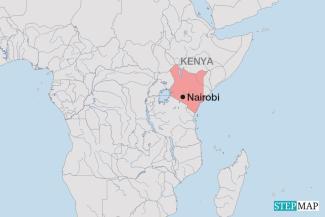Fashion industry
Promoting sustainability in Kenya’s fashion sector

Kenya has a vibrant and blossoming fashion industry that creates quality apparel, foreign exchange and jobs. Actors are now taking bolder steps to incorporate sustainability in the industry through implementing sustainable fashion. This practice includes efforts to reduce environmental impact, protect workers and uphold animal welfare. The industry has thus taken an important step to not only increase the attractiveness of its products to consumers on the global market, but also to promote ethical business and sustainable production models.
One fashion start-up, Africa Collect Textiles, is upcycling textile waste. This concept aims to protect the environment from the destructive effects of textile production and at the same time creates new jobs for the collection, sorting and upcycling of used textiles.
While plastic packaging is still the most common practice in the country, some Kenyan fashion companies have started to use sustainable packaging material instead. The fashion house HyaPak has started using ecological packaging material made from hyacinth, for example. Hyacinth is an invasive plant that is often considered a nuisance due to its tendency to block waterways.
Collective responsibility
Some fashion brands limit their ecological footprint by using renewable energy, mostly solar power. One of them is Mariam Couture, founded by designer and entrepreneur Mariam Kembo in 2019. Using rainwater in the production of textiles is becoming popular too.
Part of the change is that some fashion houses are increasingly paying fair wages – an important step in improving the welfare of workers and their families. Fair pay also increases the likelihood that employees will be loyal to their company. The companies hope that this will create loyalty among their customers too.
But no one can drive change alone. What Kenya needs is a collective effort by the entire industry. Everyone has a role to play in promoting the sustainability ideals that the aforementioned brands and many more emerging brands in Kenya stand for, from the government to businesses, media players, celebrities and consumers of fashion products.
“It’s possible, and it’s important to go sustainable,” says Zia Bett, founder of Zia Africa, another sustainable fashion brand from Kenya. “There are many options in sustainable fashion. It can be as simple as saying we’ll use our scraps for other clothes or donate them to someone who makes sofas. You can opt for fair trade by offering your employees good working conditions. It’s all a part of sustainability.”
Joseph Maina is a freelance writer based in Naivasha, Kenya.
mainajoseph166@gmail.com















